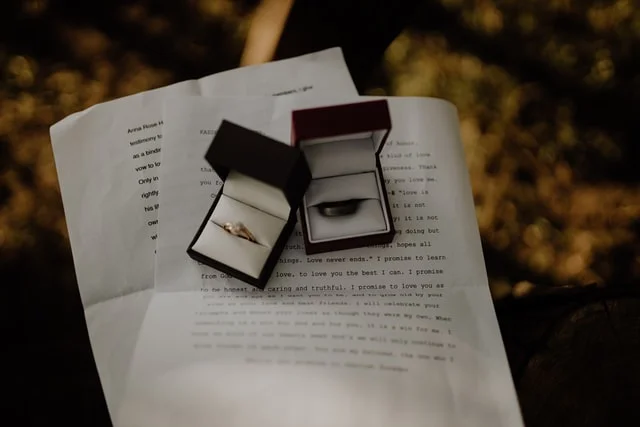Pre-Nuptial Agreements
Click here for more videos of our Youtube channel
Our Solicitor Nico Serafino will explore the pre-nuptial agreements in details.
Historically, pre-nuptial agreements were not often looked at by courts, which meant a significant amount of autonomy in marriages and civil partnerships was lost. In recent years, however, courts have started to consider pre-nuptial agreements more and more, and they are a viable and useful way of protecting your and your partner’s interests in and after marriage.
When two would-be spouses take their time to agree on how their properties and finances must be divided in the event of a separation, they save one another from numerous court battles that are as time- and cost-consuming as emotionally draining.
A prenup is a legal document, meaning it must be composed clearly and professionally, bringing benefits to both parties who sign it. Consider asking a credible prenuptial agreement solicitor in the UK, such as Sterling Law, to prepare a marriage contract document for you.
Sterling Law will help you at every step of the process – including in writing and enforcing the agreement. Courts will often give more weight to pre-nuptial agreements if it is clear that the agreement was written with the help of legal professionals and the correct procedures were followed.
- What Is a Prenuptial Agreement?
- Who Should Get A Prenuptial Agreement?
- What Should Be Included In A Prenuptial Agreement?
- What Cannot Be Included in a Prenuptial Agreement?
- Are Prenuptial Agreements Legally Binding In The UK?
- When Should a Prenuptial Agreement Be Signed?
- Can a Prenuptial Agreement Be Modified after Marriage?
- Postnuptial Agreements. What Is the Difference Between a Prenuptial and Postnuptial Agreement?
- How to Make a Prenuptial Agreement?
- How Much Does a Prenuptial Agreement Cost?
- How Can We Help?
- Our experience.
What Is a Prenuptial Agreement?
A prenuptial agreement (also known as an ante-nuptial, matrimonial agreement or pre-marital agreement) is a formal settlement between two individuals who sign it prior to getting married. The purpose of a prenup is to stipulate how the couple’s assets and debts will be handled in the event of a divorce, separation, or death of one of the spouses.
In other words, a pre-marital agreement clearly describes what each partner will get if their marriage comes to an end. Prenups have a strong association with persons who are wealthy or famous, but actually, this contract is designed to benefit any couple who is going to be joined in marriage.
Frequently, a marriage contract is concluded after a legally registered marriage. Such a document is called a post-nuptial agreement or a postnup agreement. Couples tend to enter into post-nuptial deals when their financial situation experiences remarkable changes and their wealth grows after getting married.
However, sometimes a court may decide that a postnuptial contract is less legally binding than a prenup. Make sure you consult an experienced marriage contract attorney in the UK who can clarify your rights and options before you make an important decision.
The ante-nuptial agreement specifies what assets each of the parties owned before they got married. It also specifies what assets each person will own if the marriage is annulled and after the couple has acquired some joint property (or some debts).
Who Should Get A Prenuptial Agreement?
Generally, an individual may want to sign a prenup when they have substantial premarital wealth and want to protect it in a worst scenario. Premarital agreements are also common among people who have been divorced and are all too familiar with the stress and challenges of splitting marital assets after a breakup.
Here are some typical situations that push couples toward having a prenuptial deal:
- You or your partner have significant financial or/and real estate assets acquired before marriage.
- You or your partner have a share in family fortunes or family business and are expected to get an inheritance.
- You or your partner have children from a previous relationship and want to secure them financially.
- You or your partner operate a business or have a share in some business.
- You or your partner hold debt or intend to incur debt.
What Should Be Included In A Prenuptial Agreement?
Different issues can go into a pre-marital agreement. As mentioned above, a prenup is a written contract between two individuals, outlining what assets have been owned by each party prior to marriage, as well as what property rights that will come into effect should a divorce or separation strike, or if one of the spouses passes away.
For a pre-marriage contract to have legal force, both parties must disclose the information about all of their existing financial and property possessions, including real estate, stocks, retirement accounts, as well as existing debts, including student loans, auto loans, a mortgage, and even credit cards.
Here is a list of aspects to be included in a prenup:
- Existing possessions. When drawing up a prenuptial agreement, a person not only needs to disclose their premarital assets, they also need to specify whether these assets will then become marital property. This includes home equity or the growth of an investment account. Parties can also determine how the joint property will be distributed in case of a divorce (separation, or death).
- Current debts. If one (or both) spouse has current debts that can be brought with them into the marriage, the document should stipulate the responsibility of both parties in paying the debts. For example, whether prenuptial debts will be paid as part of household bills, or whether the debt holder remains solely responsible for paying off. The agreement can also specify the liability of each party should one of the spouses build up debts while in a marriage.
- Alimony payments. If the couple decides to dissolve a marriage, the spouse with a lower income may be eligible for spousal support. However, parties can include this aspect into their prenuptial agreement, specifying whether they fully agree, partly agree, or totally disagree to provide spousal alimony after a divorce. It is worth noting that this provision may be terminated by the court if deemed unfair.
- Financial responsibilities of spouses. A marital agreement must also provide an explanation of how finances in the marriage must be managed. This includes operation of joint bank accounts, household bills, and household expenses. Details on how both parties will file tax returns, how major purchases will be handled, and how credit card payments and spending will be controlled, are also generally included in a marriage contract.
- Care for children from previous relationships. When entering into a marriage agreement, many individuals may want to protect children from previous relationships. This helps to ensure that if the parent passes away, the children will receive a fair portion of the marital property and inheritance.
- Revenues from running a business. In case one or both spouses operate their own businesses, the prenuptial agreement must specify whether the profits generated from such a business are considered separate earnings or marital property. The treatment of each spouse’s revenues generated from stocks or shares is also described in the contract.
- Retirement savings. Contributions to a pension account during the course of marriage are considered marital property, and a person might be entitled to some or all of their partner’s pension in case of a divorce. If you want your retirement savings to belong solely to you if the relationship ends, you should outline this in your prenuptial agreement.
- Inheritance. A prenup can also be used to assign beneficiaries of inheritance and specify the distribution of property if one of the spouses dies.
What Cannot Be Included in a Prenuptial Agreement?
Prenuptial agreements are designed to cover different financial and property aspects of a marriage. Yet, a range of areas cannot be officially registered in premarital agreements. These include:
- Anything illegal. Any UK prenuptial agreement would prohibit the inclusion of anything illegal into it. In fact, if you do so, you can end up with the whole document or its parts being unenforceable.
- Child support. Prenups cannot include decisions regarding child support, child custody, visitation, religious upbringing, or schooling.
- Personal and lifestyle matters. A marriage contract cannot dictate the rules regarding the chores each spouse will perform in a marriage, the name each party will have after getting married, the habits each spouse must or must not develop, the contributions of each toward child rearing, etc.
A marriage contract is designed to tackle financial aspects. Any provisions that are not financial issues will not be included in a prenuptial agreement. When it comes to a court battle, a judge may become uncomfortable when they see personal or lifestyle matters included in a contract, and often dismiss the document as legally invalid. If you and your spouse wish to enter into an agreement on such matters, do so in a separate document in which the court will have no authority to interfere.
Are Prenuptial Agreements Legally Binding In The UK?
It is vital to understand that while prenups are official and enforceable documents in the UK (if prepared correctly), the court may decide to distribute the spouses’ property in a different way than that is prescribed in the contract. This will depend on the peculiarities of an individual case. Factors that may be decisive when splitting marital assets in the court include:
- A contractually valid agreement. A prenuptial agreement may not be legally binding if the court finds out that it was not entered into by one of the parties freely and willingly, but under pressure.
- Forward marriage contract. To be legally binding, prenuptial agreements in the UK must not be signed within 28 days immediately before the marriage date to ensure each party has enough time to consider the contract.
- Full disclosure of the partner’s financial situation. Both parties must be fully aware of each other’s financial situation at the time of signing a prenuptial agreement. Provisions of false financial information or withholding financial information may render the prenuptial agreement unenforceable.
- Legal advice. Both parties must receive legal advice before they go into concluding the marriage contract. It is vital to ensure that a couple has entered into a prenuptial agreement clearly realizing what they were doing and understanding possible financial consequences for each party.
- Fair conditions of a prenuptial agreement. The contract must be formed in such a way that its conditions never put either one of the spouses, or more importantly children or inheritance beneficiaries mentioned in the contract, in a position of severe financial hardship.
When Should a Prenuptial Agreement Be Signed?
In the UK, a couple must ensure that they sign a prenuptial agreement at least 28 days before they get married, with both being fully aware of each other’s financial situation, and all the information regarding one another’s assets, property or debts being disclosed.
Can a Prenuptial Agreement Be Modified after Marriage?
A marriage contract cannot be modified after being agreed upon and signed by both parties, or once the couple is married. If a couple is unhappy with the terms of a prenuptial agreement, they can enter into a postnuptial agreement to make alterations to the prenuptial contract. Postnuptial agreements are also legally binding and are taken into account by the court if the relationship breaks up, but they are created after marriage.
Postnuptial Agreements. What Is the Difference Between a Prenuptial and Postnuptial Agreement?
A postnuptial agreement (postnup) is an official marriage contract that is formed after the couple gets legally married. Both prenups and postnups are designed to protect the finances and property of each spouse if their marriage comes to an end.
The main difference between prenuptial and postnuptial contracts is that after a marriage, the assets of both partners have merged into marital property at the moment they sign the marriage contract. This may include stocks and shares earned during the course of the marriage, a real estate purchase after getting married, the establishment of a new business, etc. A postnup will take care of all marital assets earned during the course of the marriage.
How to Make a Prenuptial Agreement?
To be legally valid, prenuptial agreements in the UK must be concluded in a written form, signed by both parties, and notarized. To ensure your prenuptial agreement is enforceable, you need to do the following:
- talk to a family law expert regarding the nuances of a marriage contract in your particular case;
- resort to a qualified prenuptial agreement solicitor in the UK to help you create a legally effective prenuptial agreement;
- fully understand the conditions of the agreement you are going to enter into, as well as realize possible financial consequences enforced by the agreement in the event of a divorce;
- enter into the prenuptial contract willingly, without experiencing any external pressure;
- fully disclose all the facts about your financial situation, including available assets, property, and debts, before signing a marriage contract.
How Much Does a Prenuptial Agreement Cost?
In the UK, the cost of prenuptial agreements can vary depending on the difficulty of each particular case, as well as requirements of both parties who enter into the agreement. We at Sterling Law offer a flexible fee service for creating legally valid marriage contracts, and we can confirm the final cost of your particular prenuptial agreement once you provide us with your exquisite requirements.
How Can We Help?
Family lawyers at Sterling Law have vast experience in forming effective prenuptial agreements that are tailored to benefit you in determining how marital property must be divided in the case of a relationship breakup. We take pride in our highly-qualified prenuptial agreement solicitors in the UK who possess deep knowledge, solid competence, and practical know-how in composing excellent, legally valid marriage contracts tailored to meet the specific demands of each given couple.
Our experience
Sterling Law has a track record of successful prenuptial agreements involving various sums of money, assets, and wealth. In the jurisdiction of England and Wales, we have worked with high-net-worth individuals as well as numerous family units. As a result, we are well-versed in both standard pre-nuptial agreements and high worth cases. We have summarised some material facts from cases we have handled below.
Unlike financial remedy orders, it does not matter if the parties’ assets are significantly different. For example, we recently drafted and executed a pre-nuptial agreement between two parties, one of whom had £300,000 in total assets and the other nearly £1,000,000. We were successful in negotiating and obtaining agreement from both parties on the terms. Similarly, we worked on securing and executing a pre-nuptial agreement between two parties, one with over £6 million in assets and a high income, and the other with assets totalling £500,000.
A more common example is the declaration of assets with similar values, such as £10,000 versus £12,000, to use a recent example. Importantly, in this case, as in others, pre-nuptial agreements consider generational wealth by declaring future inheritance. This is significant because it safeguards family wealth, assets, and income. Despite having only £10,000 in assets, our Client had future assets worth over £700,000 in inheritance. We were able to declare and include everything in the agreement.
Of course it is always important to remember when drafting pre-nuptial agreements that any agreement reached is fair. This does not mean an equal split of the assets as seen above but it does require careful consideration as to how each parties’ share is calculated.
Therefore, in the event that the party’s relationship breaks down, we have the reassurance and peace of mind that our client’s assets will be better secured and protected, than if they had not entered into an agreement. Based on the foregoing, we strongly recommend for you to deal with the logistics and legalities in advance, to avoid risking far more in the future.










